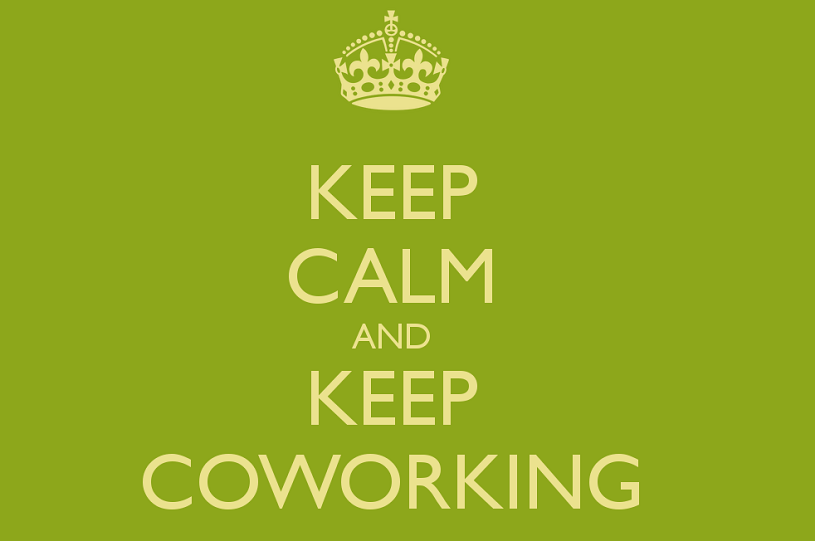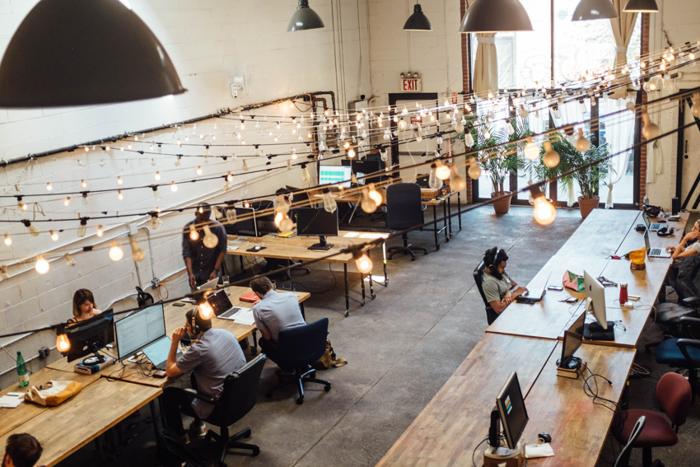
Over the past three years, Dhaka has seen an increasing number of coworking spaces and ready office spaces to begin operation. According to the coworking space listing website Coworker, there are some 19 coworking and serviced office providers in Bangladesh, between Dhaka and Chattogram. While the list has some inactive names such as inHouse in it, the list is pretty much representative of the growing demand for ready office space in Bangladesh.
A growing startup community, rising interest in independent freelancing, and changing working style have helped fuel a slow but steady demand for coworking and ready office facilities. For small startup teams, managing an office is both expensive and a hassle. Coworking spaces offer a relatively superior solution to that problem.
Many coworking spaces in Dhaka claim to offer affordable space, opportunity to be part of a community, and a host of other interesting perks meaningful to startups, freelancers, consultants, and people interested in productivity and new way of working.
Hubdhaka, one of the earliest coworking space in Dhaka, was launched in 2014. The same year global serviced office provider Regus opened its first space in Bangladesh. Hubdhaka today has a successfully running space in Mirpur. Regus expanded and today has a presence in two locations in Dhaka: Panthapath and Gulshan.
Moar, another coworking space, was founded in 2015 and today, has space in two locations - Banani and Dhanmondi.
There are other prominent ones as well such as Open, Shuru Campus, MadHub, Co+Lab, Cospace, Workstation 101, Hive, Bonik among others.
Seasoned real estate companies like Building Technologies and Ideas Limited (bti) have gotten into serviced office space business of late. In 2019, the company officially launched its ready office space The Business Center in Dhaka that offers both ready offices to individuals and small teams.

Coworking and ready office space providers in Dhaka offer a host of services in the form of different tiers of memberships. There are membership options where individuals could use the address for business purposes. Then there are packages for individuals and companies with greater amenities.
Almost all the coworking spaces host both small and big teams, individuals and on-demand members. For example, in their Dhanmondi location, Moar has a relatively sizeable startup that uses almost 50% of the space.
This has become a lucrative strategy for almost all coworking and serviced office providers in Dhaka. Many coworking spaces have tried to attract small teams and corporates as part of their strategy. Having small and big teams and corporate members offer greater sustainability and consistent occupancy compared to freelancers and individual members.
There are common spaces in the form of hot desks and then there are dedicated spaces for individuals and small and big teams.
Over the past decade, coworking has become a dominant global trend. In many thriving startup ecosystems, coworking is considered as an important ingredient for the growth of the startup ecosystem.
The rise of companies like WeWork and Regus have helped popularize the trends across the world. Today, Regus has a presence in over 120 countries in 3000 locations. WeWork has been going through a series of turbulent events following its management scandals of late.
Coworking has popularized ideas like collaboration, networking, open office space, and collaborative office design, and flexibility in the world of business and tech. Coworking spaces routinely sell community as part of their value proposition.
Bangladesh started to catch-up with the trend in early 2014. While the country is far from markets like India and China and Indonesia in terms of the number of coworking spaces, there has been a growing interest in the coworking space over the last two years. The number of coworking spaces has increased dramatically from a handful of spaces to almost two dozen.
As an independent business, coworking offers a great story and potential upside to build vertical businesses on top of coworking services such as events, courses, food, and services for members.
You not only sell a space, you help build a community. If you can build a successful coworking space, you have chances to build other vertical businesses on the side such as offering services to your members, hosting events and so on.
However, balancing all these aspects is not easy and there are very few examples where coworking spaces have managed to successfully integrate all these perceived advantages of owning a space and building a community. Certainly, there is no case of such success in Bangladesh as yet.
There are examples of successful coworking businesses across markets. According to a DeskMag survey, only 40% of coworking spaces were profitable in 2019 and more than 70% of all coworking spaces eventually become profitable after two years in operation.
While a growing number of startups, corporations, and individuals are now opting for coworking and ready offices, coworking is yet to become a booming business in Bangladesh. Many coworking spaces remain semi-occupied in most months. There are a few providers with space in multiple locations.
It is true that the awareness and conversation around coworking in certain communities have grown, but the real business is yet to catch up. There is a general demand issue in the market. For many startups and freelancers, coworking is an expensive choice despite the fact that many coworking spaces sell affordability as one of their main value propositions.
While all estimate suggests a promising future for serviced office space business in Bangladesh, the growth remains tentative, at least for now.
